Urban Transportation
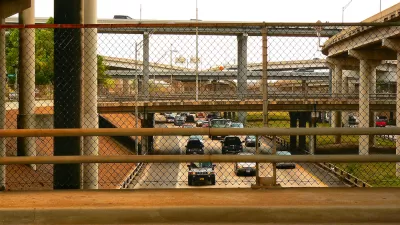
Smart Congestion Costing: A Critical Evaluation of the 'Urban Mobility Report'
The new "Urban Mobility Report" provides widely-cited congestion cost estimates. However, its analysis is neither comprehensive nor objective. Anybody using these estimates should understand its omissions and biases.
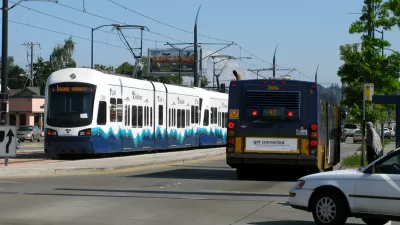
Reducing Motor Vehicle Traffic in Cities
The World Resources Institute's Transformative Urban Mobility program has produced two new guides that succinctly describe why and how cities can implement transportation demand management policies and programs.
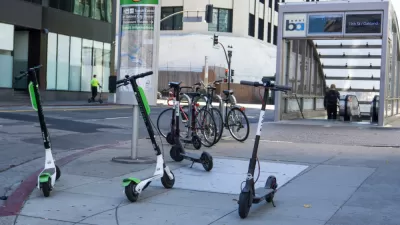
For Tiny Vehicles, Safety Comes With Numbers
Motorists tend to look out for hazards they expect. If tiny vehicles proliferate, including electric scooters, greater safety will follow.
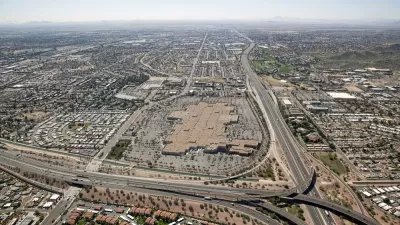
Outcomes of the Federal Highway Program: Inequality and Polarization
It's a vicious cycle: highways enable white flight, establishing a power base for a political party opposed to urban transportation systems.
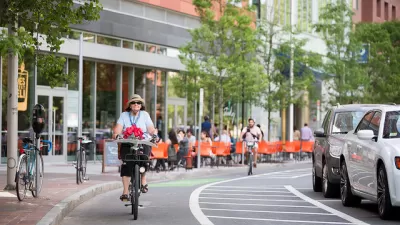
Researchers Develop 7 Metrics to Evaluate Bike And Pedestrian Projects
New research lays the groundwork for a universal standard by which to measure effectiveness of bike and pedestrian infrastructure projects.
Delhi to Implement Complete Streets Policies
Dehli's Aam Aadmi Party-led government announced steps to ensure that pedestrians, cyclists, and public transport users get preference over car users.
Surveying the Weakest Arguments Against Bike Lanes
According to a recent newspaper editorial, "Egged on by the hardcore enthusiasts, New York City is spending lots of money, confiscating lots of lane-miles and basing its transportation policy on a fantasy." Who knew white paint is so threatening?
Same Source Data, 'Contradictory Conclusions' on Congestion
A curious discrepancy between two major congestion reports using the same data: There is a profound and unexplained discrepancy between the travel trends in the latest Urban Mobility Scorecard report and the data provided by Inrix.
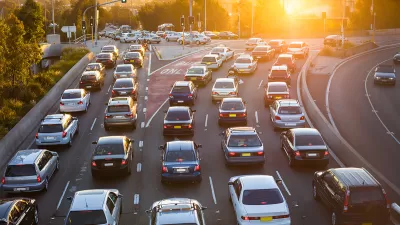
2015 Urban Mobility Scorecard: Still Measuring Urban Travel Conditions Incorrectly
The new Urban Mobility Scorecard measures traffic congestion with greater precision, but incorrectly. As with previous editions, it exaggerates congestion costs and undervalues the congestion reduction benefits of alternative modes and Smart Growth.
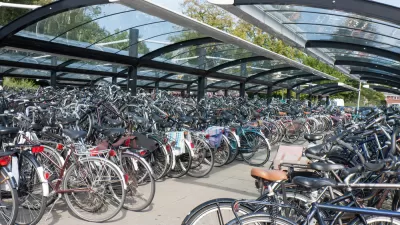
Lessons from Overseas Cycling Infrastructure
LennyBoy (civil engineering professor Glen Koorey) posts terrific information concerning bicycle planning best practices, based on his three-month tour of North American and European cities.
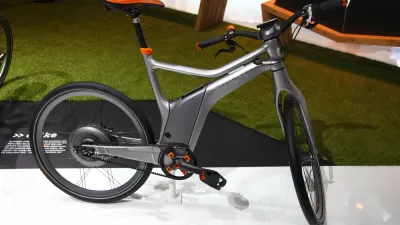
Five Things You Need to Know About E-Bikes—An Urban Transportation Paradigm Shift
When you have a small electric motor, a battery, and a throttle on your bicycle, it becomes very difficult to make any more excuses. Here's why...
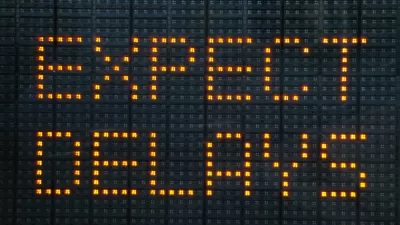
How Not To Measure Traffic Congestion—Hold the Hyperbole, Please!
The new INRIX congestion costing report is another good example of bad analysis. We just want accurate information; hold the hyperbole, please.
Post-Car? Helsinki's Plans for a Tech-Enabled Mobility Network
Helsinki, capital of Finland's, is working to create a "mobility on demand" system that integrates shared and public transit in a single payment network. The idea is that with such a system in place, residents would no longer need cars.
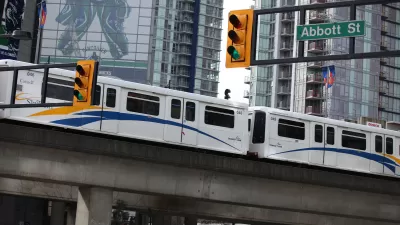
Evaluating Public Transport Funding Options
Many jurisdictions need additional funding to improve, or just maintain, their public transport services. A timely new study evaluates eighteen potential funding options according to eight criteria.
Congestion Costing Point-Counter-Point
Conventional transportation planning tends to exaggerate congestion costs and roadway expansion benefits, and undervalues other transportation solutions such as improving alternative modes, pricing reforms and smart growth policies.
TTI's Urban Mobility Report Flawed, Says Critic
The Texas Transportation Institute just released its 2010 Urban Mobility Report, which is a standard reference in the road-building industry -- and is seriously flawed, says Joe Cortright.
New Study Reexamines Causes and Costs of Congestion
Analysis indicates that compact development reduces the time urban residents spent in traffic and requires less spending on highways.
Minneapolis Launches Public Bicycle Share
Minneapolis follows Denver in launching it's public bicycle sharing program today. The bicycles will provide a fast, convenient and carbon neutral means of getting around and are based on the highly successful Parisian scheme.
D.C.'s Green Parking Reform Takes Root
Washington D.C. has begun to make key green parking reforms that will plow parking revenue into neighborhood bicycling and walking improvements.
Urban Design for Planners 1: Software Tools
This six-course series explores essential urban design concepts using open source software and equips planners with the tools they need to participate fully in the urban design process.
Planning for Universal Design
Learn the tools for implementing Universal Design in planning regulations.
Caltrans
Smith Gee Studio
Institute for Housing and Urban Development Studies (IHS)
City of Grandview
Harvard GSD Executive Education
Toledo-Lucas County Plan Commissions
Salt Lake City
NYU Wagner Graduate School of Public Service


































